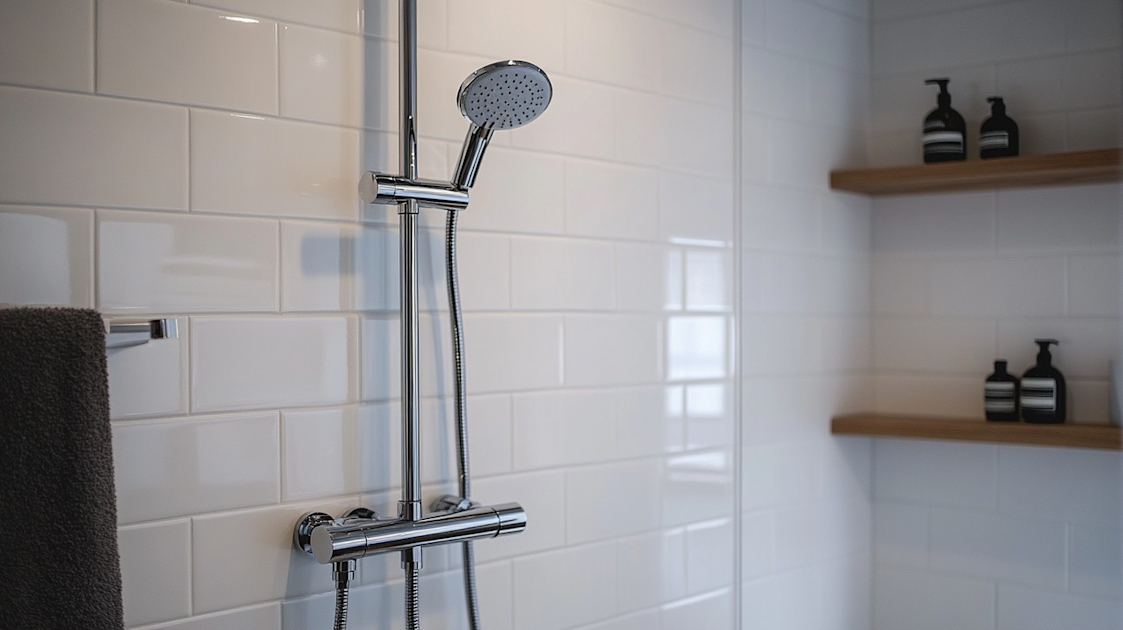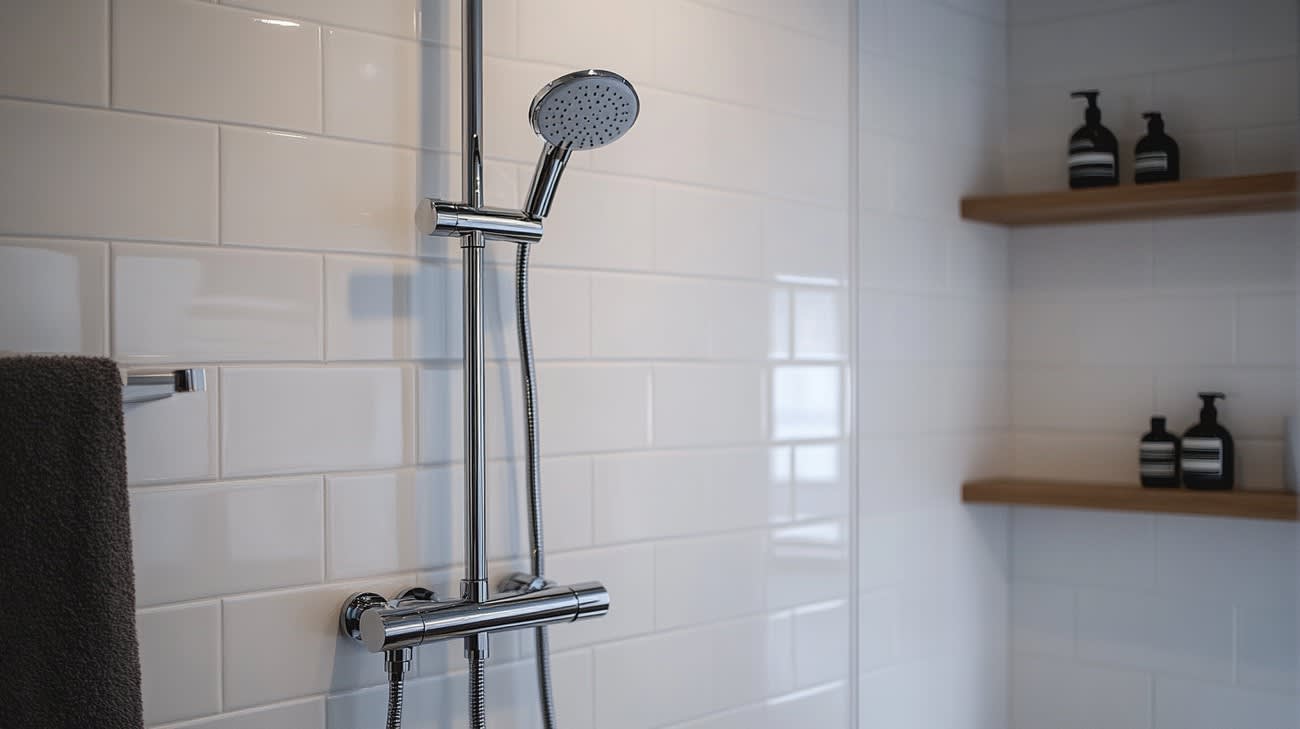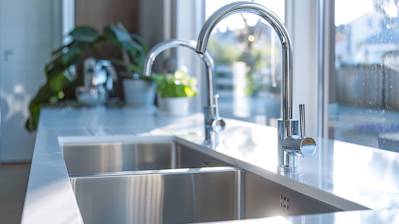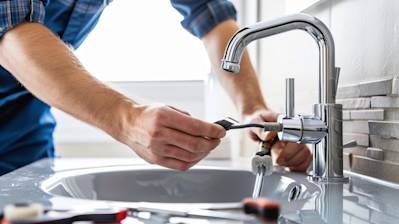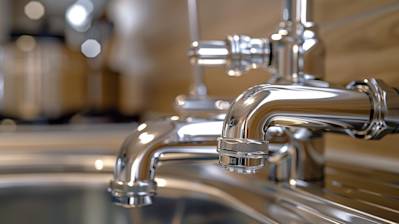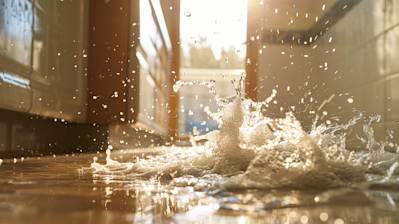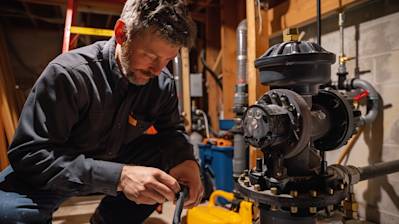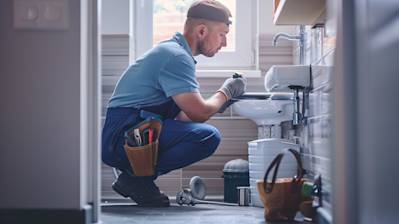Most of us start our day with a refreshing shower, and yet, we seldom give a second thought to the mechanism that controls the water flow and temperature. This unsung hero of our daily routine is the shower valve. By delving into this critical piece of bathroom hardware, we aim to help you make informed decisions whether you’re planning a bathroom renovation, addressing plumbing issues, or simply expanding your knowledge.
Shower Valves: More than Meets the Eye
Shower valves are hidden behind the scenes, incorporated into your shower system’s plumbing. Their primary role is twofold - controlling water pressure and temperature. This allows you to enjoy a consistent, comfortable shower every day. Different types of shower valves available can vary in their mode of operation, installation process, and functionality.
Dive into the Different Types of Shower Valves
Here’s a rundown of the common types of shower valves:
Pressure Balancing Valves: These are probably the most popular type. They maintain a balance between hot and cold water supply to ensure a desired temperature.
Thermostatic Valves: In contrast to pressure balancing ones, these allow you to control the water pressure and temperature independently, providing a more personalized shower experience.
Diverter Valves: They direct the flow of water between various outputs (like a showerhead and hand shower). These can be either built into the mixing valve or be separate units.
Sequential Valves: As the name suggests, these valves regulate both the flow and temperature sequentially in a single handle that you rotate.
Manual Valves: Purely functional, these shower valves require you to adjust the water temperature each time manually you shower.
Top Factors to Consider When Buying Shower Valves
When choosing a shower valve, it’s more than just picking something that fits your budget. Here are some factors you should take into consideration:
Budget: Pressure balancing valves are more affordable but provide lesser control. Thermostatic valves offer better control but come with a higher price tag.
Number of Outputs: More outputs like hand showers, body sprays, and showerheads will need a diverter valve or a valve with multiple outlets.
Functionality: Increasingly, valves come with additional features like anti-scald protection and eco-friendly water-saving settings.
Installation: Concealed valves offer a cleaner, more minimalist look but can be harder to maintain and repair, whereas exposed valves are easier to service.
Installation: Do It Yourself or Hire a Pro?
While DIY installation can save you money, shower valves involve dealing with plumbing, something that is best left in capable hands of a professional. Improper installation can lead to leaks or uneven water distribution, which can result in further costly repairs.
Maintenance and Longevity: The Lifeline of Your Shower Valve
Regular maintenance is key to increasing the lifespan of your shower valve. Regular cleaning with mild soap and water helps prevent mineral build-up which often causes malfunctioning. Always refer to the manufacturer's guidelines; a little effort goes a long way in preventing costly valve replacements.
The Role of Shower Valves in Sustainable Living
Eco-conscious homeowners tend to lean towards valves with water-saving features. Reduced water usage not only cuts down your bills but also contributes significantly towards sustainable living.
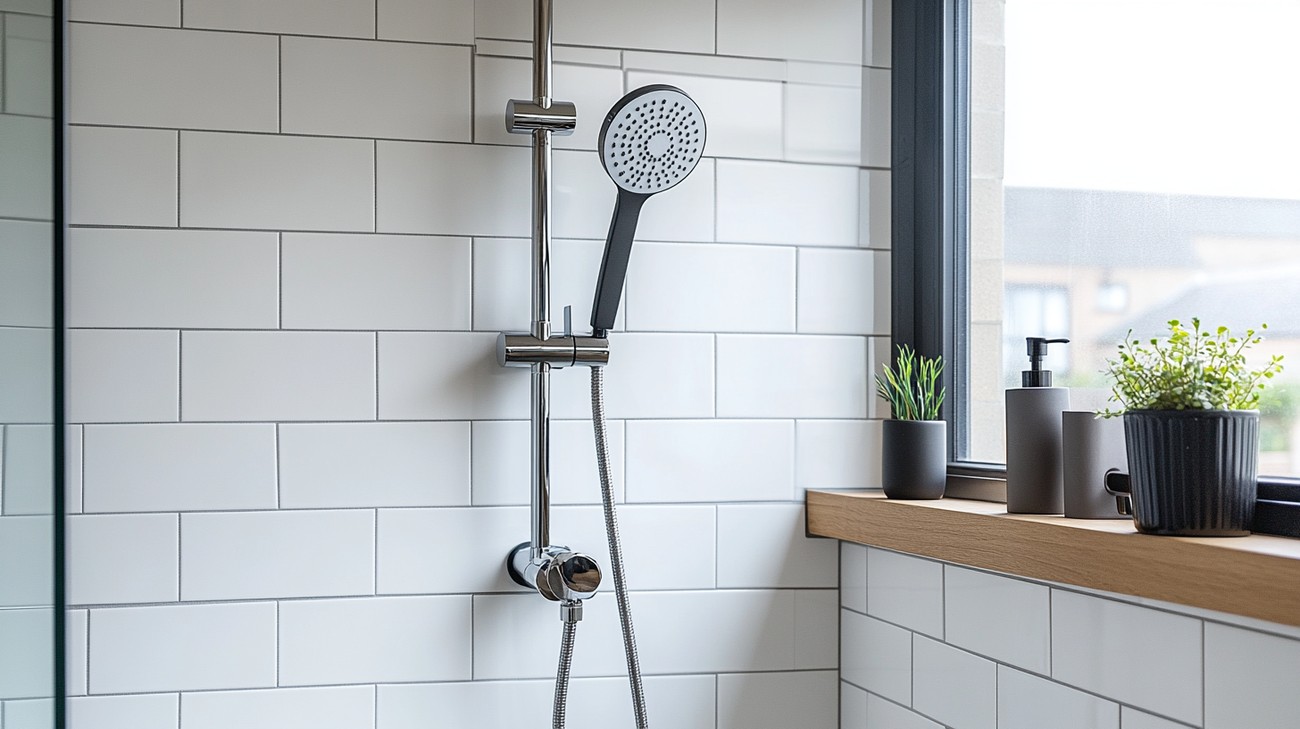
Frequently Asked Questions about Shower Valve
Are there different types of Shower Valves?
Yes, there are. There are four main types of shower valves: Pressure-Balancing Valves, Thermostatic Shower Valves, Diverters and Transfer Valves, and Manual Shower Valves. Each type features different functions and controls for your shower temperature and flow.
When should I replace my Shower Valve?
Typically, shower valves should last a pretty long time. However, if you experience constant dripping, difficulties in temperature regulation, or an absolute lack of water flow, then it might be time to consider replacing your shower valve.
Can I install a Shower Valve by myself?
While it is possible to install a shower valve by yourself, it is usually recommended to hire a professional plumber. The process can be complex and requires knowledge on plumbing and building codes. However, if you're confident in your DIY abilities, be sure to study thoroughly before attempting.
What are the signs of a faulty Shower Valve?
Besides low water pressure and constant dripping, other signs of a faulty shower valve include sudden changes in water temperature, inability to turn off the water completely, or rusty and dirty water. If you experience any of these symptoms, you might need to repair or replace your shower valve.
How frequently should I clean my Shower Valve?
For optimal performance, it is recommended to clean your shower valve every six months. However, if you live in an area with hard water, you might need to clean your shower valve more frequently to prevent mineral build-up.
Can I use any Shower Valve with any Shower?
Generally, shower valves are not one-size-fits-all. The type and size of the shower valve you need will depend on the type of shower you have, your plumbing, and the existing holes in your wall. Always check compatibility before purchasing a new shower valve.
Why is my Shower Valve leaking?
A possible explanation for your leaking shower valve could be a worn-out seal, a problem that can be resolved by replacing the seal. If your shower valve is still leaking afterwards, such a condition might indicate a more serious problem with the valve – a reason to consider replacing the whole valve.
What should I do if my Shower Valve is stuck?
If your shower valve is stuck, it might be due to a build-up of hard water deposits or sediment in the valve. Try cleaning the shower valve first, and if the problem persists, you might need to replace the valve.

Pros of Shower Valves
Control Over Water Temperature
One of the most significant advantages of shower valves is the control they provide over the water temperature. Many models come with an anti-scald benefit, which prevents a sudden increase or decrease in water temperature, protecting users from potential burns or cold shocks. They do this by maintaining a balance between the hot and cold water that is supplied.
Consistent Water Pressure
Shower valves give users the ability to control and maintain a balanced water pressure. This is an advantage, particularly for homes with multiple showers. It ensures that you won't experience a sudden loss of water flow or pressure when someone else in the house starts using another faucet or flushes a toilet.
Wide Range of Styles
Shower valves come in a variety of styles and finishes. You can choose one that complements other fixtures in your bathroom for seamless integration. Whether you prefer a modern, glossy look or a more traditional, brushed finish, there's sure to be a shower valve that fits your aesthetic preferences.
Durability
Most shower valves are made from materials designed to resist corrosion and wear, such as brass, stainless steel, or other durable metals. With proper care and maintenance, a high-quality shower valve can last for many years, holding up even under frequent use.
Cons of Shower Valves
Installation Complexity
Installation of shower valves can be quite tricky and often requires professional expertise. This is due to the specific tools required and the need to work within your home's plumbing system. Doing it wrong can cause leaks or other problems down the line that may require costly repairs.
Cost
Shower valves, particularly high-end models with advanced features, can be relatively expensive. The cost is not just for the valve itself but also for the professional installation, which can add to the overall expenses. This can make replacing or upgrading your shower valve a significant investment.
Maintenance
Over time, shower valves can build up mineral deposits, particularly in areas with hard water. This can affect the valve's performance and require regular cleaning or even replacement parts. In some cases, hard water can even cause the valve mechanism to become stiff, making it more difficult to adjust the water temperature and flow.
Compatibility Issues
Not all shower valves are compatible with all types of showers, tubs, or plumbing systems. You may find that your preferred model does not work with your current setup, necessitating further adjustments or renovations. This not only adds to the cost but can also lengthen the time it takes to install your new shower valve.
Wastage of Water
Traditional shower valves control the water temperature by mixing hot and cold water. If the hot water takes a while to reach the shower, it can result in an unnecessary waste of water. Thermostatic valves are an alternative, but they come with their own set of challenges and are more expensive.

Myths and Misconceptions about Shower Valves
Shower valves make an important part of our everyday routines. Despite this, not many of us know much about this essential bathroom fitting. A number of misconceptions surround the use, installation, and maintenance of shower valves. In this section, we'll dispel some of these myths and shed light onto these misunderstandings.
Myth 1: All Shower Valves are the Same
Misunderstanding
You might think that a valve is a simple device and thus, every shower valve must operate in a similar fashion.
The Truth
The fact is there are a variety of shower valves available, and each functions in a different way. Some of the common types include pressure balance valves, thermostatic valves, and diverter valves. They each have a unique purpose and key features.
Myth 2: Higher Pressure Always Equals a Better Shower Experience
Misunderstanding
A common misconception is that shower valves that allow for higher water pressure equate to a significantly more enjoyable showering experience.
The Truth
While it's true that good water pressure is important for a comfortable shower, too much water pressure can actually be wasteful, uncomfortable, and potentially damaging to your plumbing system. A balanced water pressure is generally more desirable.
Myth 3: Shower Valves are Universally Sized
Misunderstanding
It's often believed that shower valves come in a universal size, fitting any and all types of showers.
The Truth
Shower valves come in a variety of sizes, and the selection greatly depends on the specifics of your shower setup. For instance, the water supply pipe size and the type of your shower system can influence your valve choice.
Myth 4: Installation of Shower Valves is a DIY Job
Misunderstanding
There is a prevailing assumption that installing a shower valve is a simple job that you can handle yourself.
The Truth
While some people with home improvement skills might be capable of installing a shower valve, it is not generally recommended as a DIY project for beginners. Improper installation can lead to leaks, low water pressure, or even damage to the whole plumbing system. It's best to consult with a professional plumber for such tasks.
Myth 5: Shower Valves Never Need to be Replaced
Misunderstanding
A widely held but false belief is that once installed, a shower valve will function indefinitely without requiring replacement.
The Truth
While shower valves are designed to last for many years, normal use and water quality can cause wear and tear over time. It's essential to perform regular maintenance and inspections of your shower valve, as periodic replacement might be necessary for optimal shower performance.
Myth 6: Shower Valves Can't Affect Water Temperature
Misunderstanding
A lesser-known misunderstanding is that shower valves can't influence the water temperature, and that temperature control is solely a function of the water heater.
The Truth
While a water heater does play a significant role in determining the temperature of the water in your shower, certain types of shower valves, specifically thermostatic valves, are designed to control the water temperature and can help maintain it consistently during your shower.
In conclusion, while shower valves are often overlooked, they are fundamental components of a satisfying showering experience. It's important to stay informed and have a clear understanding about these essential devices, which can help you maintain and improve your bathroom's function and efficiency.
Summary
So, by now we should have a pretty good understanding of what a shower valve is all about, right? This essential little gadget sits in the heart of each and every shower system, directing the flow and temperature of the water that comes pouring out. It's crazy to think that without a properly functioning shower valve, we wouldn't be able to enjoy the luxury of a warm, relaxing shower - we'd either be shivering from a rush of cold water or scalded by a surge of hot.
Been thinking about the poor condition of your shower valve lately? Making the choice to replace or maintain your shower valve is crucial, after all, it's the control center for your shower. If ignored, a faulty valve can cause an irritating drip or even ruin your beautifully tiled shower. Do yourself a favor and keep an eye on this part of your shower system. It's all about proactivity for enjoying a worry-free shower experience.
Well, that's about all there is to it! A shower valve might not be the most exciting thing in the world, but it's definitely a behind-the-scenes game-changer when it comes to our daily showers. You can even upgrade to a thermostatic shower valve for some luxury touch. Remember, it's the small components that often make the biggest difference. So next time you're in the shower, give a little nod of thanks to your trusty shower valve.
About KYPD Plumbing
Since opening our doors, KYPD Plumbing of Lexington, KY has continually committed itself to delivering top-rated plumbing services for the local community. We've built a strong reputation, thanks to our team of highly skilled plumbers who never falter in providing top-notch solutions for all your plumbing needs. As a full-service plumbing company, we cater to everything, from minor fixes to major renovations. So, whether your plumbing system needs a quick check or your bathroom requires a complete overhaul, trust that we’ve got you covered. In everything we do, we put your convenience, satisfaction, and safety right at the center. We delight in serving Lexington, KY and the surrounding regions - you can count on us for reliable, efficient, and friendly plumbing services.
Tags: bathroom, plumbing, water temperature,

